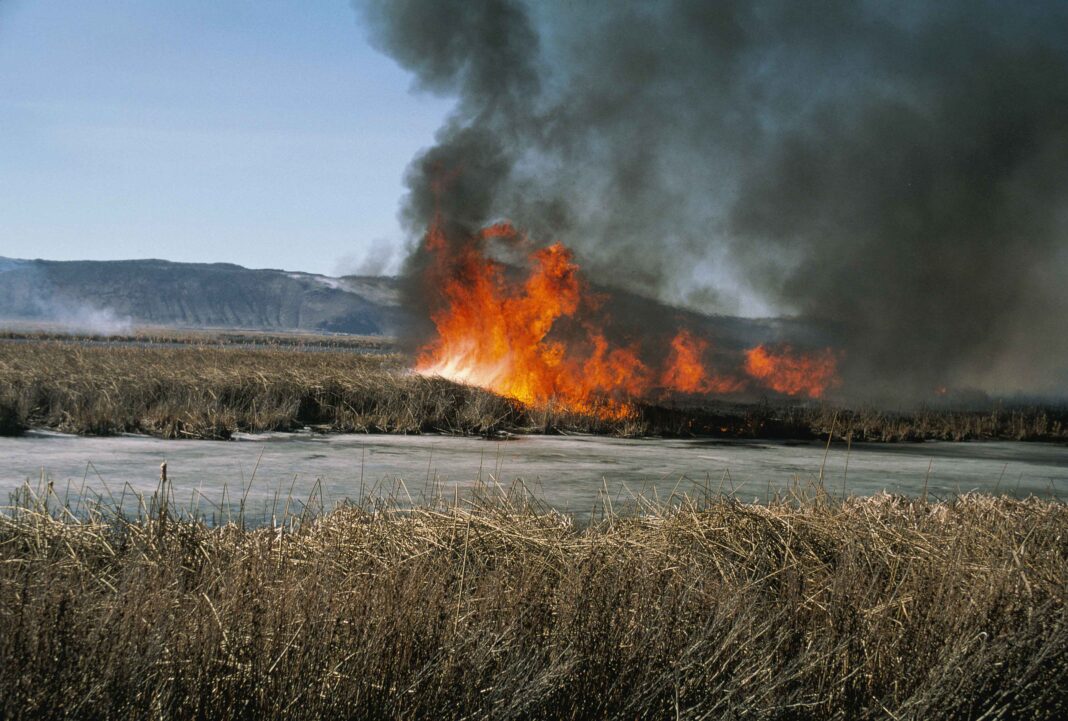Hawizeh Marshes fires destroy one of Iraq’s most precious ecosystems, with over 90% of the wetlands burned in recent days. Activists and residents say the situation has escalated into an environmental and humanitarian disaster.
The Hawizeh Marshes lie along the Iraq-Iran border and once supported rich biodiversity and human life. Today, these same lands are scorched and blanketed in thick smoke. Reports suggest more than 3,000 square kilometers have been destroyed, pushing locals to label the destruction as “real genocide.”
Local resident Mustafa Hashim spoke out about the disaster, comparing past practices with the current crisis. In previous years, residents sometimes burned dry reeds to feed buffalo, but those fires were small and easily contained. Now, however, Hawizeh Marshes fires destroy massive stretches of land daily, and Hashim blames the crews building the Iraq-Iran border barrier.
These construction crews reportedly set fires deliberately to clear space for machinery. As a result, flames have rapidly spread across the wetlands. Smoke has blanketed Maysan Governorate, leaving residents struggling with the toxic air.
In addition to the environmental impact, concerns are growing over the poor emergency response. Hashim criticized the government for not deploying firefighting aircraft. He also called out the lack of accountability for the damage already done.
Meanwhile, activist Aya Mansour shared an urgent message on Instagram. warned that “a humanitarian catastrophe is unfolding in the Hawizeh Marshes.” She blamed oil expansion for the displacement of Marsh Arabs. She claimed the fires are burning villages, killing animals, and drying out what remains of the marsh.
Mansour urged support for local communities and called silence “a betrayal that history won’t forget.” She warned that ethnic cleansing is occurring under the guise of development.
These claims echo previous concerns. In May, Al-Sharq Al-Awsat warned that oil exploration posed serious risks to the marsh ecosystem. Now, activists argue that destruction is no longer a future threat—it is already happening.
Hawizeh Marshes fires destroy not only natural beauty but also a way of life. Environmental damage, forced displacement, and neglect now threaten the survival of the Marsh Arabs.



